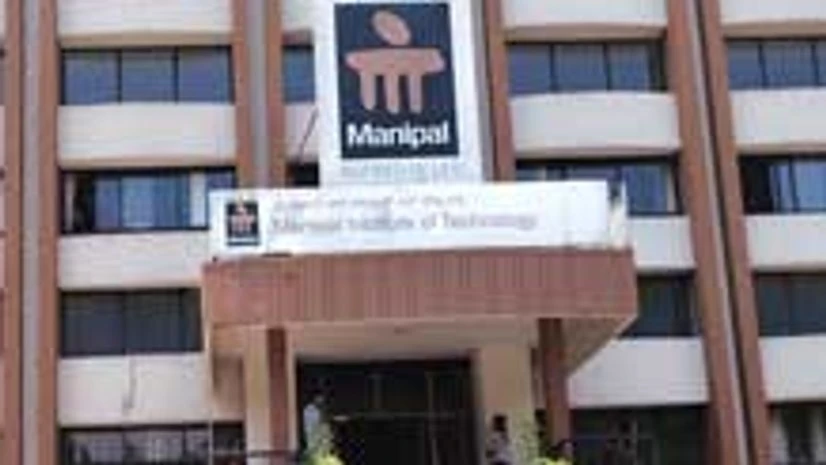A large banner congratulating Satya Nadella, the newly appointed chief executive officer of global technology giant Microsoft, welcomes you as you enter his alma mater here, the Manipal Institute of Technology (MIT). Another is going to be put up soon - for Rajeev Suri, who recently took charge as CEO of Nokia. MIT is obviously hoping many more such banners would come up in the days to come.
While it's business as usual on the 188-acre campus, with students preparing for the coming end-semester exams, one can almost feel the celebratory undertone in the corridors, the canteen and common areas. A mere mention of the two illustrious alumni gets students charged up.
"Nadella and Suri remain at the back of our mind. It adds to our confidence that both studied on the same campus where we are," says Prateeksha, a third-year student from Assam. (ALL ABOUT THE MANIPAL INSTITUTE)
More From This Section
Besides Nadella and Suri, MIT is the alma mater of Banmali Agrawala, now the CEO and president of GE South Asia; Anant J Talaulicar, chairman of Cummins India, and P V Sridhar, a senior director, operations engineering, at Apple Inc, among others. It is also alma mater of Arun Shenoy, a nominee for the Grammy Awards in the category of Best Instrumental Pop Album in 2012, and celebrity chef Vikas Khanna.
In its 57th year, MIT-Manipal has a little over 2,000 students qualifying from its 16 undergraduate and 24 postgraduate courses each year, plus around 10 PhDs. The institute has 18 departments and about 550 faculty members.
Placement hope
While the hype over the illustrious alumni continues, students hope this means better job placements. The average compensation offered to MIT Manipal graduates during campus selection is only Rs 5-7 lakh a year, less than half at the Indian Institutes of Technology (IITs). That's perhaps why Thomas laughs when told his institute is now being compared with the Massachusetts Institute of Technology-Cambridge.
"We are beginners when it comes to global colleges," says Thomas, himself an alumnus of MIT Manipal, who took up his current role in 2012. "We are beginners even in comparison to the IITs," says the former student of IIT-Madras.
Even as current and older students of MIT Manipal agree it lacks the competitive edge and illustrious placements of the IITs, all unanimously say the curriculum and style of teaching of the institute inculcates leadership and managerial skills, along with technical expertise.
"There is a culture of learning at MIT. It's not about course books and exams alone," said Elvin Jacob, an alumnus of sister-institute Manipal Institute of Communications (MIC), who studied at the university for five years and has had close communication with peers at MIT-Manipal. "In the five years I was at Manipal, there was always this excitement across the MIT campus, to take part in the several activities. Students of MIT hardly ever went back to their hostels in the evenings; they were always at the campus, taking part in the hundreds of activities that are held there."
The institute has a little over 100 technical and non-technical student groups. Some of the interesting ones include Mafia - a music and fine arts club and Formula Manipal, which develops a racing car every year and takes it to international car racing events. Last year, the car developed by the Formula Manipal Group was awarded the second best cost-effective car at an international event.
Additionally, the college has a state-of-the-art curriculum, a significant part of which has been developed keeping in mind industry requirements. MIT-Manipal has several industry-sponsored courses, in alliance with companies such as Cisco and Schneider. Unlike the IITs, it reserves the last semester (the eighth) for "student mobility", where there are no classroom studies and students have to go to industry and work.
Recently the college also started offering one module in management across all courses, aimed at helping these engineers become better leaders in their future jobs. "This course looks to ensure that students learn beyond just technology. They are trained on soft skills and leadership skills that they would require in the workplace," says Thomas.
In line with the growing trend of entrepreneurship and innovation, the institute in 2007 set up a Manipal University Technology Business Incubator. This provides facility, technology assistance and mentorship to projects of its students for 18-36 months; it holds 32 patents.
Student selection
Thomas says the institute's success also lies in the selection of students given admissions every year. With the average fees for the four-year course (excluding hostel expenses) at close to Rs 10 lakh, the air-conditioned campus mainly attracts children of upper middle-class families with strong financial backing, who might be more risk-taking, said Thomas. "We are attracting a particular segment of students," he explained. "We get students from all across the country but since this is a residential programme, they have to bear these expenses, which means these are kids whose families are reasonably positioned."
The institute does have a small reservation for students on a merit-cum-means basis in its National Online Entrance Exam. Interactions with some of the current students showed most come from families that are comfortable in bearing the college fees and expenses of the (optionally) air-conditioned hostel, which can go as high as Rs 70,000 a year.
Despite the high cost, the college saw over 45,000 applications this year against 39,000 for the previous batch. Thomas believes the Nadella and Suri factor will reach students as a message. "Nadella and Suri have given us great visibility, more than what any advertisement campaign could," he says.

)
